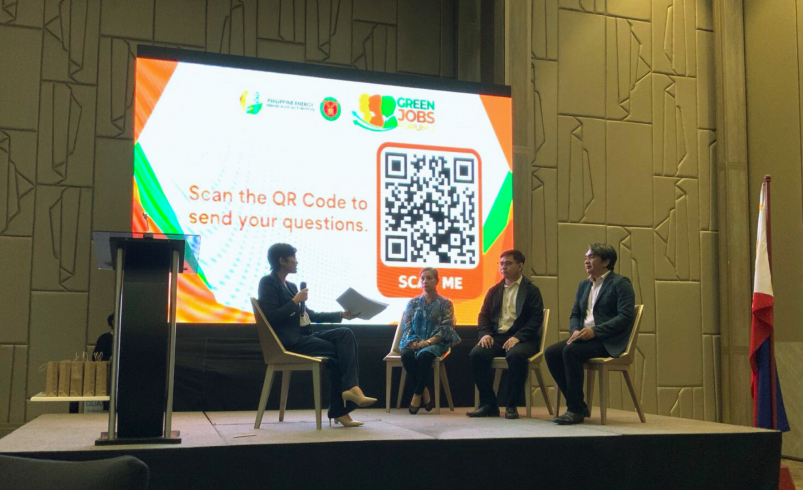TESDA, DepEd, DOLE, DILG outline skills roadmap for PH ‘green economy’
- November 25, 2025
- 0

The Philippines’ rapid expansion of renewable energy is colliding with a widening green-skills gap, government officials warned at the Green Jobs Forum 2 hosted by the Philippine Energy Research and Policy Institute (PERPI) on November 19 at Bonifacion Global City. Forum speakers said the shortage of solar PV installers, environmental management workers, and sustainability-oriented technicians threatens to slow the country’s clean-energy momentum.
Engr. Lenard A. Nerit, TESD Specialist II at TESDA’s Green Technology Center, said industry demand is outpacing the country’s supply of skilled workers. “Industries are shifting now… adopting renewable energy, eco-friendly technologies, as well as sustainable operations. They need workers who can keep up with this transition,” Nerit said.
TESDA data shows PV installation technicians, wind-sector workers, and thermal-energy technicians are among the most urgently needed roles in ongoing renewable projects. Nerit emphasized that TESDA accepts trainees regardless of previous background: “Even if you have no prior knowledge… we’ll still accept you. We do not discriminate… TESDA’s mission is to develop the Philippine workforce.”
However, TESDA is constrained by the same skills shortages it seeks to remedy. “There are insufficient trainers… since the technology is new, the pool is small,” Nerit said, adding that many training regulations and competency standards still need green integration.
At the basic education level, the Department of Education (DepEd) is trying to build a future workforce by embedding sustainability concepts early. George Labayog Jr., Supervising Education Program Specialist from DepEd’s Bureau of Curriculum Development said renewable energy content is already integrated across science subjects. “We make sure that we cater those green skills in the science curriculum,” Labayog said, highlighting lessons in biology, earth science, chemistry and physics.
Still, the department acknowledged gaps in implementation. “It’s still a challenge for DepEd to capacitate our teachers… but DepEd is doing all its effort in creating training programs that could cater those [skills],” he noted.
From the labor sector, Athena Marie E. Son, researcher at the Institute for Labor Studies (DOLE), stressed that the transition must be both green and fair. “Workers should not be left behind. That is very much the principle of a just transition,” Son said.
Son added that many jobseekers want to enter green careers but cannot find pathways. “They don’t know where to find these green jobs… Is it a secure job? Those are the concerns they raise,” she said.
Local governments—critical for project approvals and local employment—face their own constraints. Lucita L. dela Peña, Local Government Operations Officer V at the DILG’s Bureau of Local Government Development, said LGUs are mandated to craft workforce plans aligned with their development priorities, including renewable-energy projects. But she noted a major barrier: “Far-flung LGUs have no such budget for training… they usually tap TESDA because of available scholarships.”
Despite limitations, DILG said LGUs play a key role in coordinating community-level training and identifying areas suited for renewable-energy deployment. These plans can help match local labor to incoming energy investments.
Across agencies, speakers agreed that public-private partnerships—particularly for teacher training, trainer development, and industry immersion—must expand quickly. TESDA pointed to the Adopt-a-School model and ongoing partnerships with UNIDO and private firms as effective templates. “Their expertise matters to us,” Nerit said of private-sector partners helping train instructors.
As the Philippines targets higher renewable-energy capacity and a more sustainable economy, officials warned that the country’s ability to meet its goals hinges on building a competent, future-ready workforce.
“Upskilling and reskilling are essential to ensuring that Filipino workers are prepared for a green economy,” Nerit said. “TESDA remains committed to building a future-ready, inclusive and sustainable Filipino workforce.”
How can industry and local communities partner with DepEd to accelerate the integration of green skills and renewable energy concepts in basic education? Share your thoughts.
Follow Power Philippines on Facebook and LinkedIn or join our Viber community for more updates.